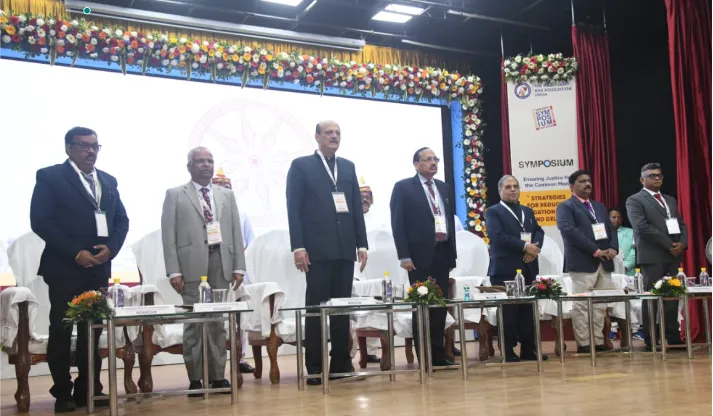

In a landmark achievement for India's burgeoning semiconductor industry, a telecom system powered by the nation's first domestically designed and manufactured chips has received official certification from the Telecommunication Engineering Center (TEC). The announcement, celebrated by IT Minister Ashwini Vaishnaw as a "big leap for India’s semiconductor story," serves as a powerful validation of the country's growing capabilities and marks a critical turning point in its mission to achieve technological self-reliance (Atmanirbhar Bharat).
The TEC certification is a crucial milestone that elevates the Indian-made chip from a promising prototype to a market-ready product. As the Department of Telecommunications' official standards body, TEC's approval is a rigorous assurance that the hardware meets stringent international benchmarks for performance, quality, and safety. This certification effectively places the indigenous chip on a level playing field with its global counterparts, which have long dominated the Indian market. For years, India has been heavily dependent on imported semiconductors for its critical digital infrastructure, from telecom towers to data centers. This approval dismantles that barrier, giving domestic telecom operators and equipment manufacturers the confidence to adopt local solutions and opening a viable pathway for Indian-made chips to enter the competitive export market.
This achievement is not just a technological victory but also the successful execution of a well-defined national strategy. While global semiconductor giants are locked in a costly arms race to develop cutting-edge sub-5nm chips for AI and high-end smartphones, India has chosen a different, more strategic path. The current focus is on mastering the manufacturing of "mature nodes"—chips in the 28nm to 65nm range. Though not the most advanced, these chips are the indispensable workhorses of the global economy, essential for the telecom, automotive, and industrial sectors.
Recent global chip shortages have exposed critical vulnerabilities in the supply chain for these mature nodes, creating a significant market opportunity. By targeting this gap, India is positioning itself not to compete head-on with titans like TSMC or Samsung, but to become a reliable and scalable hub for the chips that the world's core industries depend on. This approach leverages the nation's deep engineering talent and is a pragmatic strategy to build a resilient and globally competitive semiconductor ecosystem.
The TEC certification is both a symbolic and practical victory. It serves as undeniable proof that the government's 'Make in India' initiative and the India Semiconductor Mission are yielding tangible, world-class results. It sends a clear signal to the world that India is no longer just a consumer of high-tech components but is rapidly emerging as a serious creator and a key player in the global semiconductor value chain. This milestone is a foundational step, paving the way for reduced import dependency and a future where Indian technology powers both domestic and global innovation.
· Landmark Certification: A telecom system equipped with domestically manufactured chips has received official certification from India's Telecommunication Engineering Center (TEC).
· Validation of Quality: The TEC approval confirms that the 'Made-in-India' chip meets stringent international standards for performance and safety, putting it on par with global competitors.
· Boost to Self-Reliance: This achievement is a major step forward in India's mission to reduce its heavy dependence on imported semiconductors for critical infrastructure.
· Strategic Market Focus: India is successfully carving out a niche in the global market by focusing on producing "mature node" chips (28nm-65nm) that are essential for the telecom, automotive, and industrial sectors.